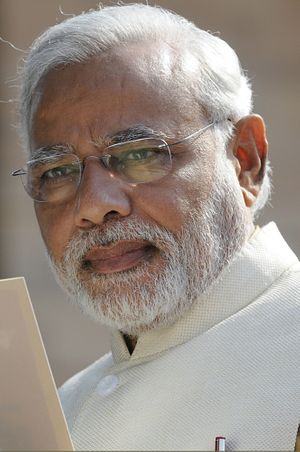For Indian Prime Minister Narendra Modi, attending this week’s East Asia Summit and the ASEAN-India Summit in Myanmar presented an ideal forum to act on India’s recent recasting of its decades-old “Look East” policy as its “Act East” policy. To this end, Modi used his address at the summit to highlight India’s ambitions for regional leadership and touched on a wide range of issues facing both ASEAN and India.
Modi began by inviting ASEAN countries to invest in India, noting that India has “embarked on a new economic journey” with a focus on “infrastructure, manufacturing, trade, agriculture, skill development, urban renewal, [and] smart cities.” On trade, Modi focused on the Regional Comprehensive Economic Partnership (RCEP), noting its potential for prosperity but cautioning that “we should aim for a balanced agreement, which is beneficial to all and is truly comprehensive in nature.”
During addresses to both the East Asia Summit and the India-ASEAN Summit, Modi touched on a variety of other economic and technological topics, including cooperation in the areas of public health, renewable energy, anti-drug trafficking, transportation infrastructure, and scientific research.
On security, Modi continued India’s recent trend of speaking out explicitly on stability in the South China Sea, including calling for all parties in the region to adhere to international norms and laws. India has addressed the South China Sea in recent bilateral joint statements, including with the United States and Vietnam. In Myanmar, Modi expressed a similar message:
For peace and stability in South China Sea, everyone should follow international norms and law. This includes the 1982 United Nations Convention on the Law of the Sea. We also hope that you will be able to successfully implement the Guidelines to the 2002 Declaration on Conduct and that the Code of Conduct on South China Sea can be concluded soon on the basis of consensus.
Modi also threw his support behind the East Asia Summit declaration on the Islamic State while noting that India rejected any linkages between any particular religion and terrorism — a significant statement considering criticism of Modi as a Hindu nationalist leader. “We support the East Asia Summit Declaration on the Islamic State. At the same time, comprehensive response against terrorism requires a genuinely international partnership against all terrorism. Those who believe in humanity must come together. We should also reject any linkage between religion and terrorism,” he said.
Modi has recently seized opportunities to speak in favor of India’s Muslim community. For example, during an interview with CNN‘s Fareed Zakaria ahead of his trip to the United States, Modi claimed that India’s Muslims would “die for India” before fighting for Al Qaeda.
The East Asia Summit also saw Modi briefly interact with U.S. President Barack Obama — their first personal encounter since Modi’s visit to the United States six weeks ago. According to a tweet by Indian External Affairs Ministry spokesperson Syed Akbaruddin, Obama referred to Modi as a “man of action,” suggesting that the prime minister was making good on India’s bid to “Act East.”
































